
Our commitments

Our commitments
Our course for 2030:
our CSR Strategy
Aware of the huge challenges we face: energy crisis, fluctuating raw materials prices and environmental impacts, SPHERE group is deploying its CSR strategy with the aim of accelerate its development towards the ecological transition and create favourable conditions for its growth in Europe.
Anticipating and providing a vision for the future – the future of our business AND the future of our planet, that’s our way of acting.
The countries of the European Union are determined to achieve climate neutrality by 2050,
in line with their commitments under the Paris Agreement. The role of the European Green Deal is to provide a framework for all new legislation introduced by the European Commission from 2020 onwards. Among the measures: ensuring that all packaging is reusable or recyclable in a way that is economically feasible by 2030.
As a European leader in the food packaging and waste sectors, SPHERE Group is involved in discussions to support the industry.
Our «COURSE FOR 2030» strategy is based on 4 pillars that demonstrate our commitment to this transition.There are many ways in which we can make progress, and our roadmap is ambitious.We have identified our challenges and defined objectivesthat we will give ourselves the means to achieve by 2030.
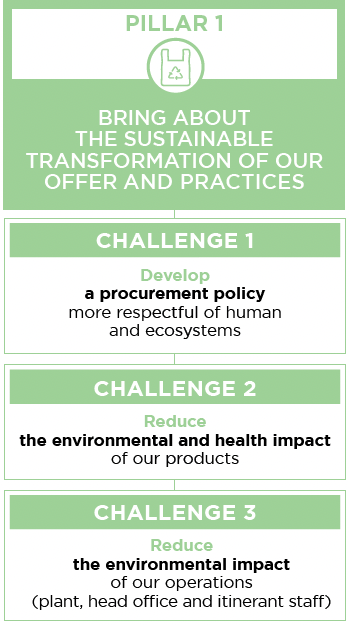
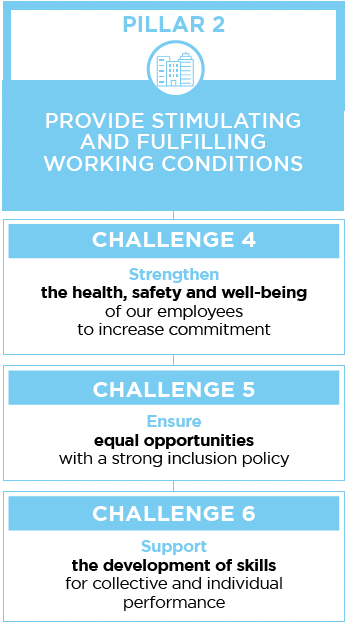
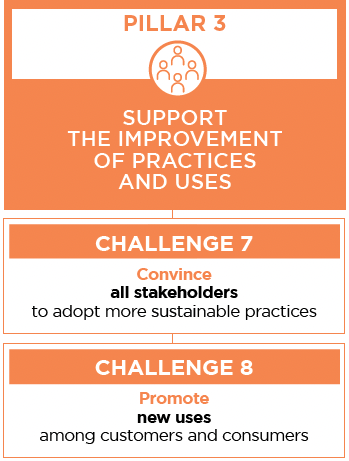
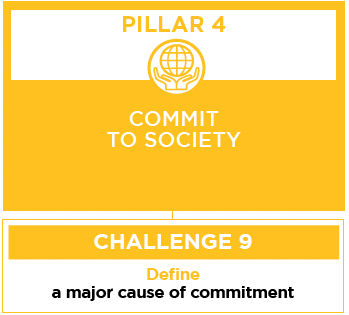
The Sustainable Development Goals (SDGs)
SPHERE commits
In 2015, the UN defined 17 Sustainable Development Goals (SDGs) to encourage companies and organisationsto address societal and environmental challenges.
SPHERE Group is supporting this global drive by contributing to the following goals:

Our products help to guarantee food safety by enabling food to be transported foodstuffs in compliance with hygiene standards.

We are committed to working with reliable, sustainable and modern energy suppliers (solar farm project) and deploying a low-carbon strategy.

We stand for: sustained, shared and more sustainable economic growth ;and a framework for well-being and safety at work.

We are committed to improve our production processes production processes to limit our environmental impact.To promote responsible consumption, we support the industry in changing practices and customs.

We are committed to measuring the carbon footprint of our sites, so that we can take steps to reduce it effectively.


We are committed to finding solutions to reduce the environmental impact on aquatic and terrestrial ecosystems.
Our commitments to a circular economy
SPHERE has been aware of the need to take environmental issues into account for over 40 years, and it continues to reinforce its commitment to the circular economy by implementing an eco-design policy and adopting an industrial strategy focused on the use of raw materials that are more environmentally friendly.

Produce better
We are increasing the number of certifications and reducing our carbon footprint.

Transparent communications
We adopt an educational approach to help all of our consumers.
This approach is in line with the objectives defined recently at European Union level (Package Circulary Economy) which stipulate that the European market must, among other things, achieve a 65% average recycling rate for its packaging waste by 2025 (including 50% for plastic packaging), increasing to 70% by 2030. In addition, the European Union expects biowaste to be collected separately (for industrial composting) or home composted by 2024.
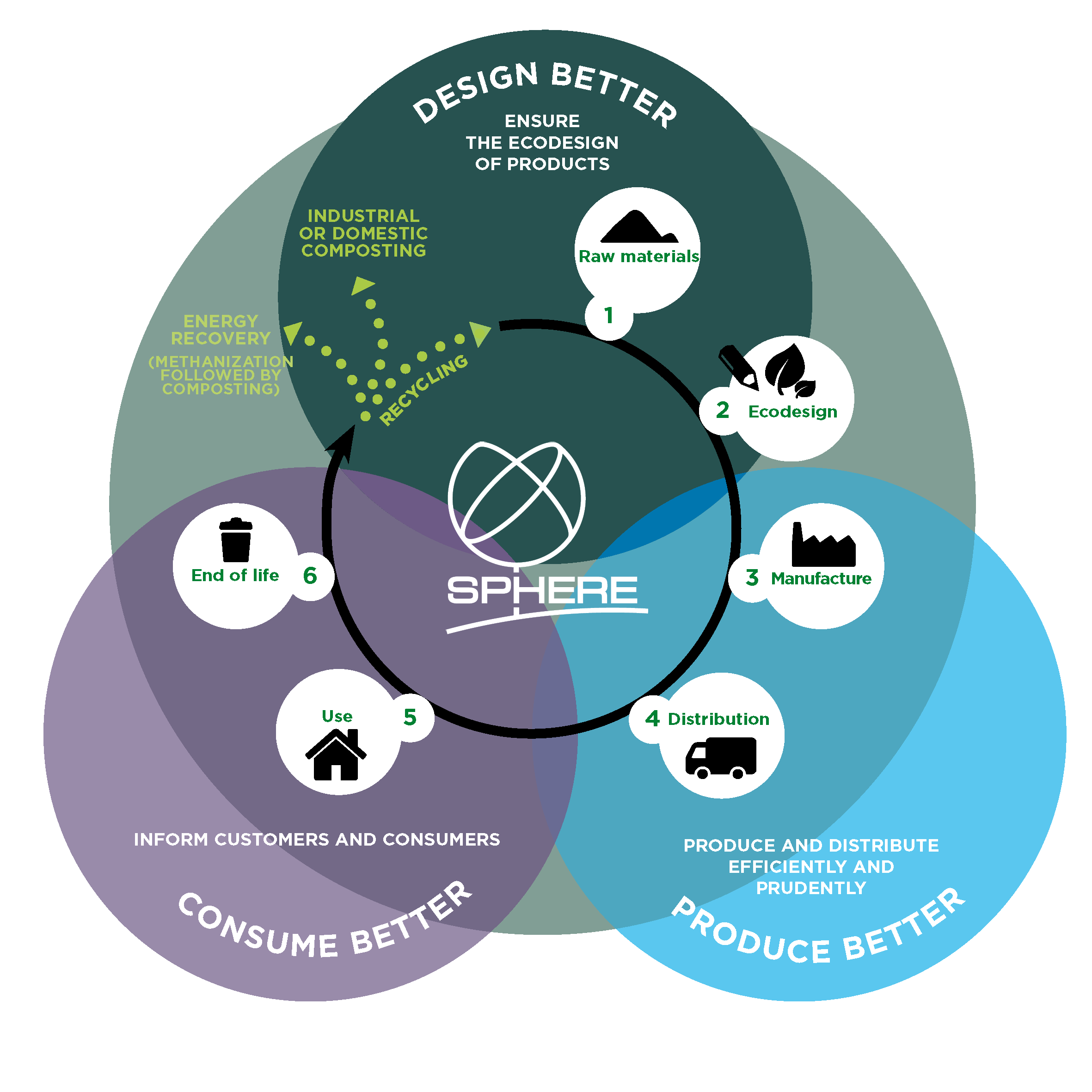
SPHERE contributes to recycling
Investments in the recycling of used plastics from its own production and those purchased externally increase the proportion of recycled products in SPHERE production and so reduce the consumption of virgin and fossil materials. SPHERE group helps its customers with the selective collection of household waste by making bags available for collection and by recovering them to be processed and recycled for reuse in its production.
For over five years, the tonnage of products from virgin fossil materials has been lower than that made from recycled materials.
SPHERE contributes to the development of the biowaste sector
The SPHERE group supplies municipalities with bio-compostable bags that can be adapted to a vented kitchen caddy to collect bio-waste and valorise it.
The recycling of biowaste, which accounts for one third of household waste, is used to produce natural fertilisers and generate clean and renewable energy.
